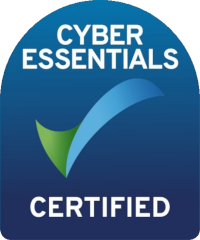BLOG
Safeguarding Student Data: The Future of Privacy in EdTech
Protecting sensitive student information in the digital age - key risks, regulations, and best practices for a secure and compliant EdTech ecosystem.
- Technology
- 03-07-2024
The Growing Importance of Data Privacy in Education Technology
The digital transformation of education has accelerated rapidly, with schools and universities adopting online learning platforms, AI-driven assessments, and cloud-based student management systems. While these technologies offer enhanced accessibility and personalised learning, they also introduce significant risks related to data privacy and security.
As education providers and EdTech providers handle vast amounts of sensitive student information, protecting this data is no longer optional - it is a legal, ethical, and operational necessity. In this article, we explore the challenges of data privacy in EdTech, key regulatory frameworks, and best practices for securing student information.
Why Data Privacy Matters in EdTech
The Scale of Data Collection
EdTech platforms gather extensive data, including:
- Personally Identifiable Information (PII): Names, addresses, contact details.
- Academic Records: Grades, test scores, learning progress.
- Behavioural Data: Interaction patterns, time spent on tasks, keystrokes.
While this data enables personalised learning experiences, it also creates vulnerabilities. A single security breach can compromise thousands of student records, leading to identity theft, reputational damage, and regulatory penalties.
Rising Threats and Cybersecurity Risks
The education sector is increasingly targeted by cybercriminals due to its wealth of sensitive data and often inadequate security measures. Common threats include:
- Data Breaches: Unauthorised access to student records.
- Phishing Attacks: Fraudulent emails tricking educators or students into disclosing credentials.
- Ransomware: Malicious software encrypting files and demanding payment for restoration.
According to a 2023 report by the UK National Cyber Security Centre (NCSC), educational institutions experienced a rise in ransomware attacks, with some universities facing complete system shutdowns due to cyber intrusions.
Regulatory Landscape: Key Data Privacy Laws in Education
General Data Protection Regulation (GDPR) (UK & EU)
- Governs how organisations collect, store, and process personal data.
- Requires explicit consent for data collection and provides individuals with the right to access or delete their data.
UK Data Protection Act 2018
- Aligns with GDPR while incorporating specific provisions for UK organisations.
- Emphasises data protection measures in public services, including education.
Family Educational Rights and Privacy Act (FERPA) (US)
- Regulates access to student education records and grants rights to parents and students.
Children’s Online Privacy Protection Act (COPPA) (US)
- Protects the online privacy of children under 13 by restricting data collection without parental consent.
For EdTech providers, non-compliance with these regulations can result in hefty fines, legal consequences, and loss of consumer trust.
Best Practices for Data Privacy in EdTech
1. Implement Strong Cybersecurity Measures
- End-to-End Encryption: Ensuring data is encrypted during transmission and storage.
- Multi-Factor Authentication (MFA): Adding an extra layer of security beyond passwords.
- Regular Security Audits: Proactively identifying and fixing vulnerabilities.
2. Adopt a Privacy-By-Design Approach
- Minimise Data Collection: Only gather essential student information.
- Enable User Consent & Transparency: Clearly communicate how data is used.
- Enforce Role-Based Access Controls: Restrict access to sensitive information.
3. Ensure Ethical Use of AI & Big Data
- Bias Mitigation Strategies: Avoiding algorithmic discrimination in AI-powered learning tools.
- Anonymisation of Student Data: Using aggregated insights rather than personal identifiers.
- Accountability for Third-Party Vendors: Ensuring compliance from all EdTech providers and partners.
Future Trends: The Evolving Landscape of Data Security in EdTech
Looking ahead, the future of data privacy in education will be shaped by emerging technologies and policy developments. Key trends include:
- Blockchain for Secure Student Records: Enabling tamper-proof academic credentials.
- Decentralised Identity Verification: Giving students control over their personal data.
- Zero-Trust Security Models: Implementing continuous verification rather than single sign-on authentication.
As digital learning becomes the norm, ensuring robust data privacy in EdTech is essential for protecting student rights, maintaining institutional trust, and ensuring compliance with global regulations. Schools, universities, and technology providers must work together to establish secure, ethical, and transparent data management practices.
By implementing privacy-by-design principles and adopting cutting-edge cybersecurity measures, the education sector can create safer and more resilient digital learning environments.

Lucy Greenwell
Product Marketing ManagerLucy is passionate about using technology and communication to improve organisations and help meet the needs of stakeholders and users.
Contact us
If you'd like to know more about how we can help your organisation, please get in touch.
Subscribe to our newsletter
About Us
Innovative digital solutions for education - supporting policy, leadership, delivery, and learning

Useful Links
Contact Us
Trent Lodge
Stroud Rd
Cirencester
GL7 6JN
0117 4573283